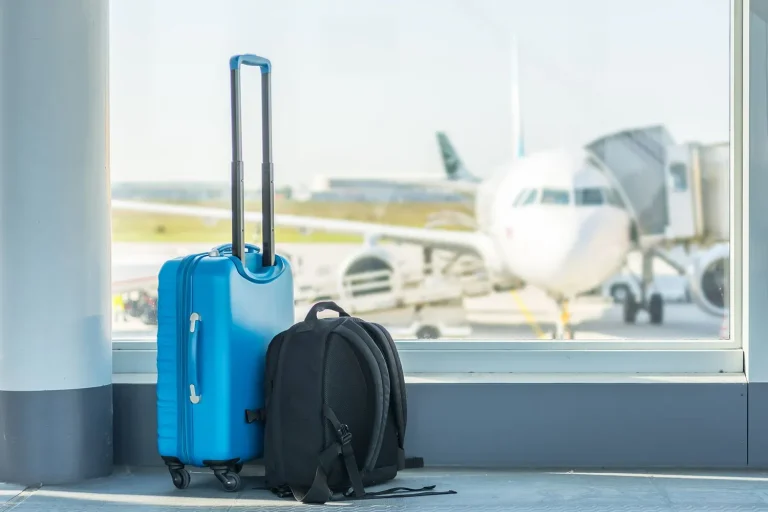Every year, thousands of Nigerians leave home for study, work, or new beginnings abroad. While moving can create amazing opportunities, it also brings surprises that no travel blog or relocation checklist can fully prepare you for. The excitement of settling into a new country often meets the reality of cultural differences, from food and lifestyle to work habits and social etiquette.
Many Nigerians quickly discover that what feels “normal” in Lagos, Abuja, or Port Harcourt might be unusual elsewhere. For instance, arriving late to an event in Nigeria might seem rude in Germany, while warmly greeting a stranger on the street might surprise someone in Japan. These experiences are all part of culture shock, which is the time of emotional adjustment when you adapt to unfamiliar social rules, communication styles, and daily routines.
In this guide, we’ll outline 12 major culture shocks Nigerians face abroad, share real experiences, and provide practical tips on how to adapt confidently without losing your Nigerian identity.
What is Culture Shock?
Culture shock is the emotional and psychological reaction people have when they enter a completely different cultural environment. For Nigerians traveling abroad, it’s that moment when everyday habits, like how to greet elders, eat meals, or joke with strangers, suddenly feel out of place. It’s not just about noticing differences; it’s about adjusting to them in real time.
When a Nigerian student moves to Canada, for example, they might be surprised that classmates call teachers by their first names or that everyone strictly follows traffic lights, even when no cars are in sight. A professional relocating to the UK might notice how people value personal space and indirect communication. Meanwhile, a family moving to the UAE might need to adapt to different dress codes and cultural restrictions.
Culture shock generally happens in four main stages:
- The Honeymoon Stage, everything feels exciting and new; the food, the language, and even the weather seem fascinating.
- The Frustration Stage and Daily challenges start to arise; it could be the cold weather, the accent barrier, or a sense of isolation.
- With the Adjustment Stage, you begin to understand how things work, from using public transport to making small talk with locals.
- In the Adaptation Stage, you finally find your balance, combining your Nigerian values with the culture around you.
For most Nigerians abroad, the aim isn’t to lose their roots; it’s to learn how to fit in while keeping their identity intact. Culture shock is a normal part of that process and recognizing it early makes adjusting much easier.
12 Common Culture Shocks You Will Experience Abroad
Every Nigerian who has travelled abroad eventually realizes this fact, the world operates on different rhythms. The way individuals eat, how they communicate, and their views on things like time, independence, and relationships all combine to make daily living feel like a completely different playbook. And below are twelve (12) commonly experienced culture shocks observed by Nigerians abroad who shared real-life experiences as students, professionals, and families living abroad.
1. Different concepts of time
In many Western societies, punctuality is an unspoken rule. In fact, being even five minutes late to class, a meeting, or any appointment can be interpreted as disrespectful. For Nigerians who are more acclimatized to “African time,” where no one expects social events to start on time, this can be an initial shock. After some time, you will realize that punctuality is not simply a matter of discipline but also it shows you’re disciplined and it shows respect.
2. Less Social Warmth
Nigerians are, by nature, warm, friendly, and very expressive we laugh loudly, greet enthusiastically, and ask about people’s families. Whereas abroad, especially in Germany, Japan, and the UK, people tend to be more reserved than we are. There is limited small talk, and handshakes or hugs are generally not welcomed. It isn’t about being cold; it’s just cultural boundaries.
3. Strict Laws and Adhering to Them
Most Nigerians are shocked by how strictly the laws are lauded abroad. For example, throughout the country, traffic signals, rubbish recycling and tax due dates all must be adhered to or else everyone will adhere to the rules and laws. People wouldn’t jaywalk, litter or try to ‘cut corners’ because they would incur fines. Thus, once one accepts the principle that personal responsibility is linked to citizenship in many countries and traditions, these principles are more accepted.
4. Transitioning to new food
Nothing brings me home like the thought of missing Nigerian food, which reminds me of childhood, having delicious jollof rice or spicy suya. It’s particularly challenging for some Nigerians in the diaspora because eating foreign meals can feel bland or repetitive. Fortunately, there are Nigerian restaurants and Afro-Caribbean stores within major metropolitan cities such as London, Toronto and Houston that satisfy some of the cravings.
5. Work/School settings and etiquette
When studying or working abroad, there is a difference in attitudes towards independence and hierarchy in the workplace and classroom. In Nigeria, work settings create a level of detachment from authority, while some Western cities create a more informal reopening environment in the office. Similarly, in class, Western professors welcome open disputes and questioning of the teacher as an equal authority, and students are empowered to explore conversations and believe in their own literacy and questioning when the topic is difficult.
6. Individualism vs. Community Living
In Nigerian culture, people grow up in communal living. Neighbors look out for each other, and family is central to the life of any Nigerian. On the other hand, most of the developed world is centered around individualism. People value their privacy and independence and deal with their personal situations in their own time. At first, this can feel very isolating, but for many Nigerians, this can be very rewarding because they learn to be more self-sufficient.
7. Weather and Seasonal Changes
What comes as a surprise in the shift from living year-round in Nigeria’s tropical climate to experiencing a cold or snowy climate is massive. Long winters in Canada and Northern Europe can lead to varying differences in both mood and lifestyle. First-time travelers often have a hard time adjusting to the early sunsets, layering on the clothing all day, and repeating the process the next day until they adjust.
8. Communication Style
Nigerians are generally quite direct and expressive, even in informal verbal behaviors like inflection and hand gestures in terms of speaking with other people. Abroad, one can expect some, especially Western cultures, to prefer more subtle interactions that seem polite. Telling someone “No” or even interrupting someone mid-sentence can come across as rude, depending on the place one is speaking to. Reading body language and tone becomes more important in communicating effectively.
9. Different Gender Roles and Expectations
Gender relations abroad can seem quite different. In many Western countries, men and women do equal parts of the work around the house, and discussions about feminism and consent happen openly. Getting used to this can take some getting used to, especially for Nigerians from more traditional backgrounds.
10. Dating and Relationships
Dating abroad can be a culture shock all on its own. In Nigeria, relationships often happen within family and cultural expectations. However, dating abroad is more casual, and public displays of affection (PDA) are the norms. It can take some time to learn to navigate these attitudes respectfully to avoid an awkward situation.
11. Financial Independence
Many Nigerians abroad discover quickly that learning how to pay bills, file taxes, and purchase insurance are all part of being financially independent. While this can be overwhelming, especially at first, it is still important to learn how to manage your finances. Eventually, living within your means and budgeting becomes a matter of survival, especially in high-cost-of-living countries.
12. Different Perspectives on Religion and Faith
Nigeria is an intensely religious country. But abroad, religions and faith are a much more private matter. You may not hear people openly talking about their faith, and some workplaces (or schools) may not openly talk about religion at all. This can be way different, but it also leads people to self-reflect and accept beliefs that are different from their own.
Tips to Adjust in a New Environment
Adapting to new cultures in a new environment does not have to be daunting. With a bit of preparation and tweaking of your mindset, Nigerians living abroad can welcome their new circumstances while remaining connected to their roots. Below are 4 useful approaches for adapting seamlessly:
1. Learn the Local Customs Early
Take the time to gauge and understand the local community’s fundamental social norms, appropriate greetings, and manners. For example, how do locals queue properly? What are the local customs for tipping? What are the general rules of punctuality? Sometimes, small acts of respect go a long way in fostering connections and building bonds of trust. It may also help you avoid any awkward misunderstandings.
2. Become Involved in Local Activities and Groups
When you seek out clubs or sports, or hobby groups, where people congregate, you get to meet locals as well as other expats. Getting involved in local activities, groups, etc. is probably the easiest way to meet others, immerse yourself in the local culture, reduce isolation, and help acclimatize your language skills.
3. Stay Connected with Other Nigerians Living Abroad
Whether through Nigerian diaspora groups, WhatsApp groups, or social media networks, it can be lived, enjoyable, and exciting to connect with other Nigerians living outside of Nigeria. You share burdens together. You find out what others did when presented with an unexpected experience, and most importantly you share cultural and celebration experiences as a source of connection.
4. Keep an Open Mind
Approach differences with an open mind, as opposed to judgment. Indulge in a new local cuisine, try to learn local expressions, and observe how daily life works. Being open and flexible, while nourishing your curiosity will help alleviate some subsequent stress of adapting.
5. Unite Traditions with New Experiences
As you learn the local culture, don’t forget which Nigerian activities give you satisfaction, cooking familiar foods, celebration, family calls, etc. This limbo state helps to preserve your identity while helping you live successfully in the new country.
6. Record Those Experiences
Whether journals, vlogs, or blogs, recording your experiences will help you to process culture shock and enroll a reflection on your own progress and change. Your experiences will help you give guidance to other Nigerians working on reshaping their own futures.
7. Ask for Help if It is Needed
For some, culture shock becomes significant for stress or affects mental health. Counseling, cultural orientation programs, or support from expat networks is a good way to help manage anxiety, homesickness, or stress.
8. Practice Language (Even the Basics)
Learning the local language (even the basics) in an easy way to facilitate day-to-day conversations, and to indicate respect for the host culture, by learning a few phrases it reduces misunderstandings and social boundaries, allowing you to open yourself up further either socially or professionally.
9. Learn the Etiquette of Work and Study
Learning how to communicate with clients, with colleagues, or classmates, navigating deadlines, or collaborating solves most unnecessary conflict. First observe, then ask questions, and then try to progress forward.
10. Give Yourself Time
It takes time to adjust. Some Nigerians felt frustrated to discover all the hard work they would put in adjusting to the new culture after a few weeks. This frustration is normal, and it’s helpful to celebrate your small wins, and realize that adaptation is a process and not a race.
Communities and Support Networks for Nigerians Abroad
Adapting to life in a new country is considerably easier when you establish a community of support. Fortunately, Nigerians have established communities of support just about everywhere in the world. These communities provide friendship, advice, and practical assistance, particularly when you first arrive at your new home.
1. Nigerian Associations
In some urban settings, Nigerians establish a formal association or society. Associations often hold cultural events, networking events, and/or workshops for newcomers. Becoming a member will enable you to meet Nigerians and get help with housing, employment, or school.
2. Churches and Religious Centers
Faith-based communities can often serve as a way for Nigerians to foster both spiritual and social connections. Attending services or community events will provide the familiarity of being in a community and typically fellowship quickly.
3. Social Media Groups
Facebook, WhatsApp, and Telegram all have active Nigerian diaspora groups. These groups are helpful for questions, sharing experiences, or finding out about local Nigerian events or activities. There are examples such as “Nigerians in Canada,” “Nigerians in the UK” and “Nigerian Students Abroad.”
4. Cultural Centers
Some countries have cultural exchange centers that assist newcomers in understanding local expectations and meeting locals. Most of these types of organizations offer workshops, language classes, and cultural tours. Engagements with such centers can expedite your adaptation.
5. Communities of expatriates
Participating in expat forums or communities, such as Expat.com or Internation, is a good idea. You will meet other Africans or global citizens who are going through similar experiences, share tips, and, in some cases, find a mentor who may help you navigate tricky situations.
6. University or workplace networks
If you happen to be a student or employed, your school or employer may have an orientation program or group with activities specific to Nigerians. They will help you with paperwork, accommodation, and social integration and provide you with a safe space to share your experiences.
7. Mentorship programs
Some organizations that serve the Nigerian diaspora engage in mentorship programming where they pair new Nigerians in a geographic location with a more experienced Nigerian in that geographic location. The mentor can assist you with understanding career options, cultural adjustment, and possibly even legal requirements
Pro Tip: It’s a good idea to combine networks rather than relying on one network. Attending a church, joining a student WhatsApp group, and engaging in a local Nigerian association gives you emotional support (from a church and WhatsApp group) and practical support (from the local association).
FAQs on Culture Shock
1. Who came up with the concept of culture shock? Culture shock is an invention, but a term introduced by the anthropologist Kalervo Oberg was the first to use the term in 1960. He used it to describe the emotional and psychological stress a person feels when acclimating to a new culture.
What are the first four stages of culture shock? While the stages fall into various categories and orders, a common understanding of the stages is:
- Honeymoon Stage: Everything is exciting and new.
- Frustration Stage: The changes and differences are overwhelming; small things are difficult challenges.
- Adjustment Stage: You start to learn the new rules, routines, and social conventions.
- Adaptation Stage: You find the rhythm and comfort in your new environment.
3. How long does culture shock last? Culture shock can last for a while depending on the individual and country. For some Nigerians, mild culture shock can last a few weeks; for others, a few months. The time it takes to fully adapt could take anywhere from 6–12 months depending on the duration of exposure, social support, and willingness to adjust and change.
4. Is it possible to avoid culture shock? Not entirely some level of culture shock is natural regardless of who you are. However, you can try to mitigate it by:
- Learning about the culture before arriving and moving.
- Staying connected to others in your similar community.
- Maintaining an open mind and patience with yourself.
Embracing Life Abroad as a Nigerian
Relocating to a different country is about way more than a change of scenery it is an entirely new world of opportunities, challenges, and growth experiences. Culture shocks are part of that experience, but they don’t define it.
The best approach is to strike a balance: accept new ways of doing things and respect the customs of your Canadian hosts, while remaining open-minded, but proud of the traditions, values, and humor that make you authentically Nigerian. And, there will come a time when what once shocked you transitions into a new chapter of your life, giving you the confidence and resiliency, and maybe even a little more compassion, as well as a wider lens when you look at cross-cultural differences and things that are new to you.
Reach out, connect with Nigerian social organizations, and when you need help, ask. Each experience is a learning moment, whether it is mastering new social norms, trying new food, or learning about different workspaces.
Ultimately, relocation is about integrating the best of both worlds, holding onto your identity, and thriving within a new culture. Every experience, every laugh, and every lesson helps you grow personally and professionally. By mentally preparing for the now and embracing the different opportunities offered to you, you can turn those culture shocks into meaningful places to draw experience while living life to the fullest overseas.
Helpful Resources for Nigerians Abroad
If you’re looking to learn more about adapting to life overseas and managing culture shock, these trusted platforms can guide you:
- Migration Policy Institute’s global report on Nigerian migration trends: Offers data-driven insights into where Nigerians are relocating and how migration patterns have evolved.
- InterNations guide on dealing with culture shock abroad: Practical tips from expats on adjusting to new cultures, habits, and social systems.
- Subreddit for Nigerian expat discussions: A community space where Nigerians abroad share real-life experiences, cultural surprises, and practical tips on adjusting to life in new countries. You can ask questions.





Leave a Comment